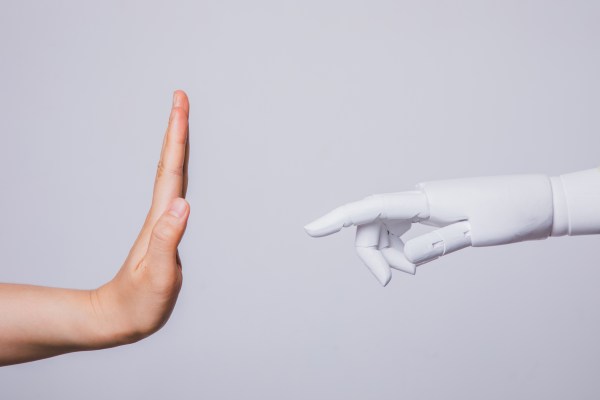W
elcome to the TechCrunch Exchange, a weekly startups-and-markets newsletter. It’s inspired by the daily TechCrunch+ column where it gets its name. Want it in your inbox every Saturday? Sign up here.
We all make mistakes. But sometimes we forget that technology does, too — especially when it comes to AI, which is still in its early days in many respects. — Anna
AI unfairness at work
Employee-monitoring software isn’t new. Also known as bossware, it is pitched by its makers as a way to help boost productivity, but by those who endure it, it’s a surefire way to deplete morale.
Having once been subjected to intrusive screenshots as a remote contractor, my view is clearly the latter, so I wish I could say employee surveillance tech was on its way out; on the contrary, it seems to be on the rise, helped in part by AI (not to mention a misguided distrust for remote work.)
Even if you don’t object to surveillance software in itself, that it relies on technology that is still in its infancy should be a concern.
“Workers are being constantly monitored, and AI-based monitoring tools can make mistakes that can translate into unfair pay cuts or firings,” a professor of employment relations told the Guardian.
We already know that technology isn’t error-proof. The British Post Office scandal was a strong reminder that employers should check their facts before wrongfully accusing anyone of wrongdoing, especially when there is a faulty IT system involved.
And yet, Fujitsu continues to secure British government contracts worth billions of pounds and employers all around the world keep putting their staff at the mercy of AI-enabled bossware that is neither transparent nor unbiased. An ethical minefield if there is one, but “not something that unions in North America have focused on,” a labor law professor told the Guardian. I wouldn’t be surprised if that were to change soon.
Not quite there yet
AI is full of potential, but in many ways, it is not quite there yet, and we shouldn’t forget it. While I am sure that AI art programs like Midjourney and DALL-E will eventually figure that most human hands have five fingers, that it still trips them up is a warning that we may not want to ignore.
We humans are prompt to laugh at the shortcomings of robots, but that’s not my point. Instead, I am perplexed by how we are cohabiting with extremely promising but also often crappy AI.
Take Google Maps, for instance. There’s a feature on its reviews section that automatically pulls keywords from user comments to surface the most frequent topics. Helpful, right? Well, not when automatic translation is involved.
As many multilingual people, I am already annoyed when sites automatically translate languages I actually speak. But I am even more irritated when the translations are bad, and they often are, especially in Google Maps’ “People often mention,” which seems to completely lack contextual awareness.
I could bore you with how it should know that when applied to a restaurant, “carta” in Spanish means “menu,” not “letter,” and how “rico” means “tasty,” not “rich.” But a Google search surfaced a much more telling example.
“The ‘People often mention’ is picking up my last name from the reviews, and translating it as Diarrhea,” a U.S.-based dentist lamented on a support page. He eventually got it fixed, so I am not going to add to his woes by naming him. But let’s just say his last name typically doesn’t mean “diarrhea,” except in Turkish, which Google was unexplainably translating from by its own initiative. Not exactly Babel Fish.
Improving workplaces?
Despite AI’s current imperfections, venture capital funds are ready to bet big checks on its future. This includes the Amazon Industrial Innovation Fund and its $1 billion treasure chest.
While it launched in April 2022, the fund is now gearing up to invest in more countries and areas such as generative AI, TechCrunch’s Kirsten Korosec learned in an exclusive interview with its new head, Franziska Bossart.
“Our vision to help accelerate automation and supply chain innovation continues to be a key priority and unlock how we can better deliver for customers and improve our workplace for employees. This year, we want to further establish the fund as a venture investor of choice for innovative startups of all sizes within the robotics, fulfillment, and logistics space,” Bossart said in an interview published on Amazon’s blog.
I would be more convinced by the prospect of improving working conditions if Amazon didn’t also have a track record of surveilling its workers — and reportedly sometimes punishing them for mistakes they didn’t make. On the other hand, I can also see how AI-enabled robots and automation can reduce injuries, with Amazon pointing to evidence that they already do. Perhaps a good reason to still indulge in what AI can’t quite grasp yet: nuance.
